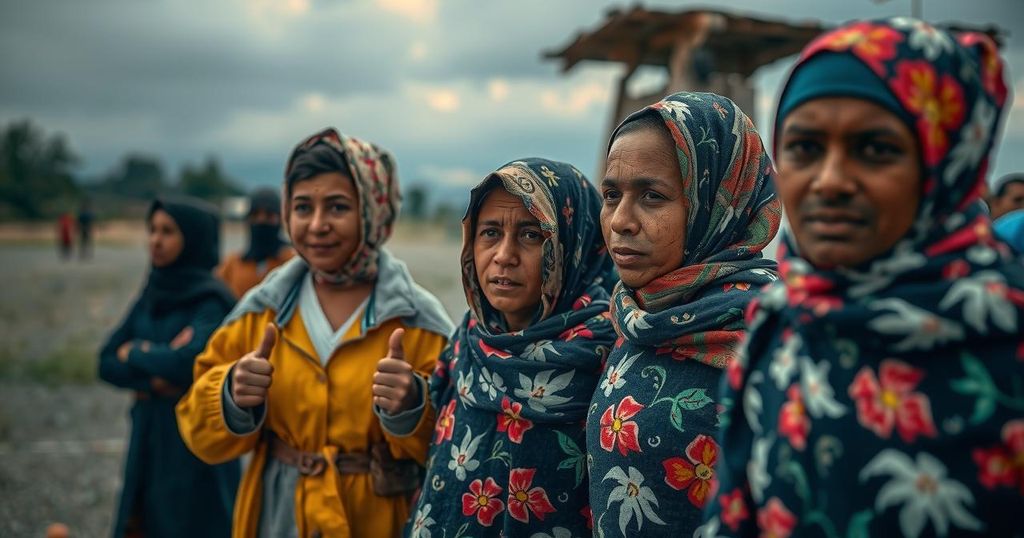The UNHCR warns that half of the world’s 120 million displaced persons are at risk due to the climate crisis and conflicts. Projections suggest that countries facing extreme climate hazards will increase drastically, affecting refugee and displaced populations. The agency highlights inadequate climate financing and calls for urgent action to protect vulnerable communities and include them in decision-making processes.
The United Nations High Commissioner for Refugees (UNHCR) has issued a stark warning regarding the plight of over 120 million displaced individuals worldwide, indicating that half of them are at the forefront of the escalating climate crisis. The report highlights that a considerable number of these individuals reside in nations grappling with both severe climate change impacts and ongoing conflicts, such as Ethiopia, Haiti, Myanmar, Somalia, Sudan, and Syria. With projections indicating that the number of countries experiencing extreme climate-related hazards will surge from three to 65 by 2040, the situation for these displaced populations is expected to worsen significantly. Furthermore, the majority of refugee settlements may experience a dramatic increase in hazardous heat days by 2050. Filippo Grandi, the UN High Commissioner for Refugees, expressed that climate change exacerbates the distress of the most vulnerable populations, which are already suffering from conflict and insecurity. In addition to this, the report discusses the dire consequences of the conflict in Sudan, where millions have fled, including a significant number to Chad, a nation already experiencing the effects of climate change. Many displaced persons who remain within Sudan confront additional risks of displacement due to severe flooding. Notably, the report criticizes the inadequate climate financing directed towards refugees and host communities in fragile or war-torn countries. It is alarming that these nations receive only about $2 per person annually for climate adaptation, compared to $161 per person in stable countries. Further, the report stipulates that the bulk of funding tends to concentrate on capital cities, leaving rural areas in dire need without support. The UNHCR has called upon states to prioritize the protection of those forcibly displaced and include them in financial and policy decision-making processes. The urgent message conveyed is that without substantial resources and effective support, affected populations will remain trapped in cycles of vulnerability. In conclusion, the UNHCR’s report underscores the critical intersection of climate change and displacement, bringing to light the extreme challenges faced by millions of forcibly displaced individuals. These challenges are exacerbated by inadequate funding and a lack of comprehensive support measures to mitigate the impacts of climate change and conflict. Urgent action is required to address these issues and to ensure the protection and well-being of those affected by these compounding crises.
The ongoing global climate crisis is intricately linked to the increasing number of forcibly displaced persons worldwide. The UNHCR’s findings reveal that a significant portion of displaced populations resides in areas severely affected by climate change while also grappling with social and political instability due to conflicts. The projected rise in countries facing extreme climate hazards highlights the urgent need for an intersectional approach that addresses both climate change impacts and the humanitarian needs of displaced communities. As climate-related impacts become more pronounced, they simultaneously threaten the safety and sustainability of the environments that host vulnerable populations.
In summary, the UNHCR report illustrates the grim realities faced by over 120 million forcibly displaced individuals, particularly in regions struggling with both conflict and climate change. The urgent need for enhanced climate financing and effective support mechanisms is critical to alleviate the suffering of these populations. It is imperative for global decision-makers to recognize their responsibilities and ensure that climate-related policies incorporate the voices and needs of those most affected by such crises.
Original Source: www.aa.com.tr






